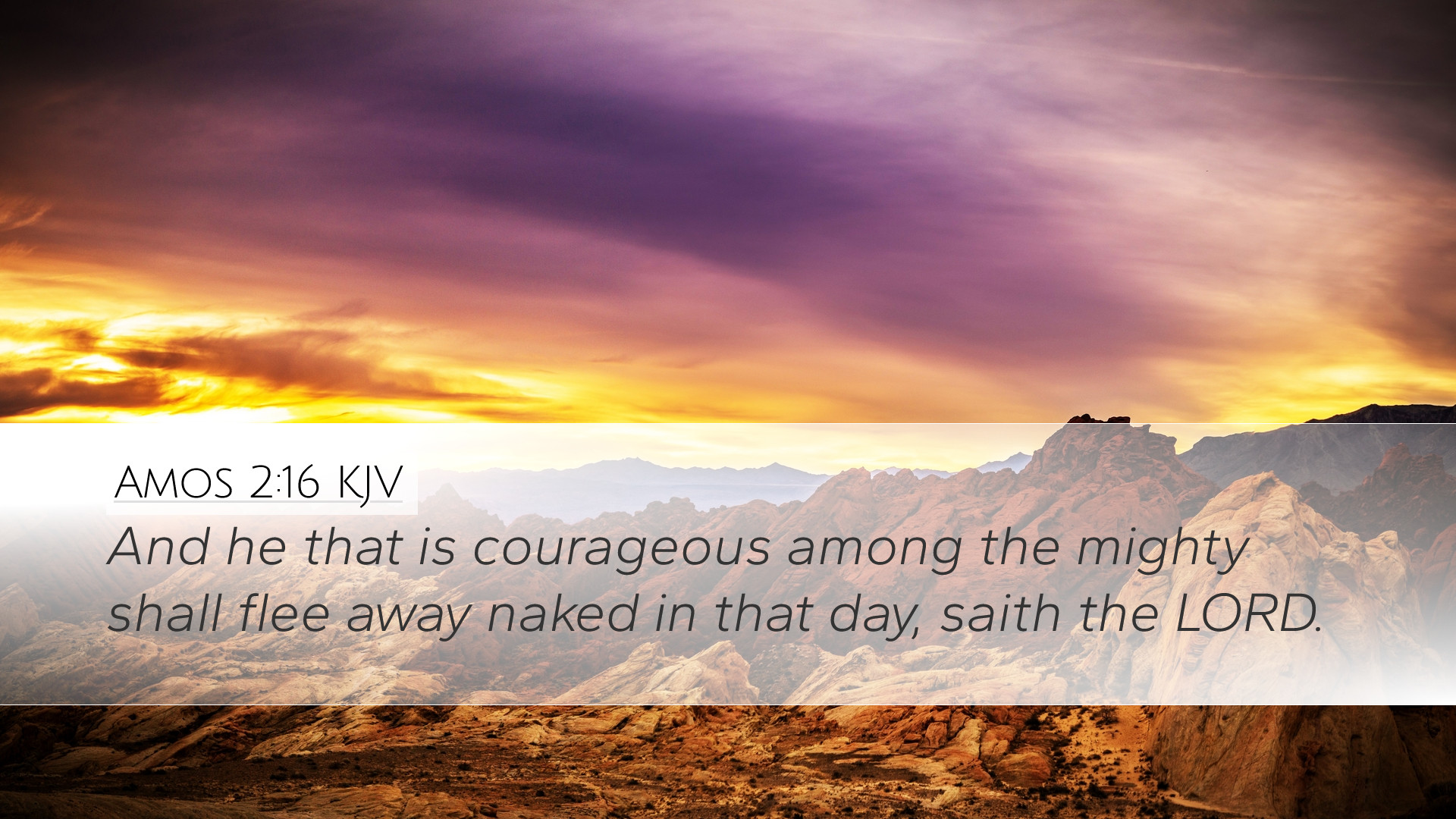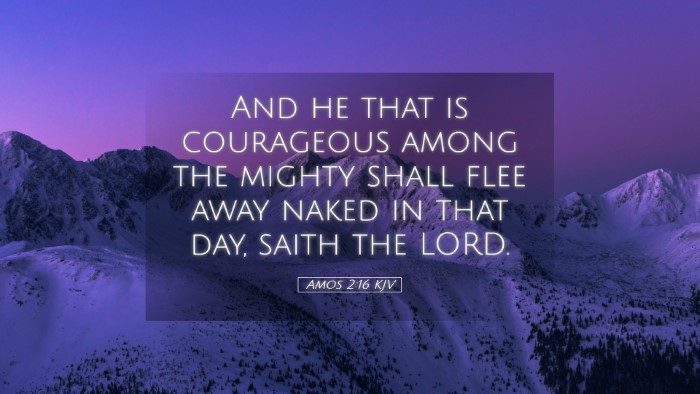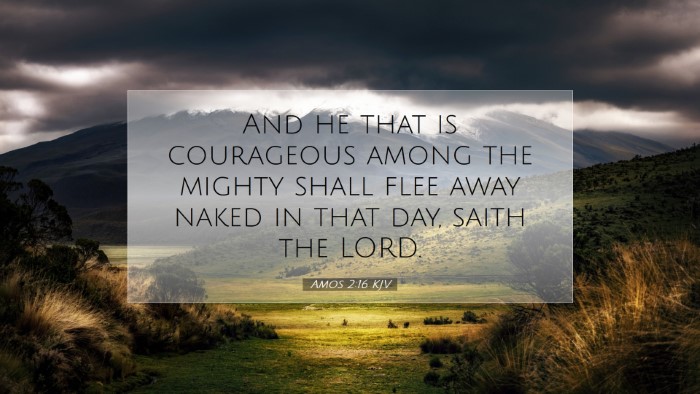Old Testament
Genesis Exodus Leviticus Numbers Deuteronomy Joshua Judges Ruth 1 Samuel 2 Samuel 1 Kings 2 Kings 1 Chronicles 2 Chronicles Ezra Nehemiah Esther Job Psalms Proverbs Ecclesiastes Song of Solomon Isaiah Jeremiah Lamentations Ezekiel Daniel Hosea Joel Amos Obadiah Jonah Micah Nahum Habakkuk Zephaniah Haggai Zechariah MalachiAmos 2:16
Amos 2:16 KJV
And he that is courageous among the mighty shall flee away naked in that day, saith the LORD.
Amos 2:16 Bible Commentary
Commentary on Amos 2:16
Verse Text: "And he that is courageous among the mighty shall flee away naked in that day, saith the LORD." (Amos 2:16)
Contextual Overview
The Book of Amos is known for its poignant messages of justice and forthcoming judgment against Israel for its social injustices and disobedience to God. Amos, a shepherd called to prophesy, emphasizes the consequences of national sin and the need for true repentance.
Commentary Insights
1. The Nature of Courage and Strength
Matthew Henry notes that the text addresses those who pride themselves on their might and valor. In a highly militarized society, many relied on their strength, believing it could protect them from divine judgment. However, God's word dismantles this notion.
2. The Reality of Judgment
Albert Barnes explains that this verse serves as a stark reminder that human strength is ultimately futile against divine wrath. In the context of an invading army or impending disaster, even the most courageous warriors would find themselves defeated and shamed. The promise that “they shall flee away naked” signifies a complete loss of dignity and security.
3. Nakedness as Symbolism
Adam Clarke elaborates on the metaphor of nakedness. This stark image represents not only physical vulnerability but also a spiritual state of disgrace before God. To be stripped of armor, weaponry, and pride is to be exposed before one’s enemies and God, highlighting that without divine favor, all human efforts are inadequate.
Theological Reflections
- Human Dependence: The commentary suggests a re-evaluation of human dependence on worldly power and wisdom. It urges believers to recognize that true strength comes from God, not from personal prowess.
- The Call to Humility: In the face of impending judgment, there is a profound call to humility. The mighty are reminded that pride precedes destruction (Proverbs 16:18), and reliance on one’s might can lead to severe consequences.
- Divine Sovereignty: The text reinforces the sovereignty of God over nations and individuals. As it was true in Amos’ time, it remains pertinent today; no earthly power can withstand the decree of God.
Practical Applications
This verse invites reflection among pastors and believers regarding their approach to strength, leadership, and reliance on God. Some practical applications include:
- Emphasis on Humility: Encouraging congregations to adopt an attitude of humility before God rather than boasting in their abilities or achievements.
- Preparation for Trials: Teaching that spiritual strength is essential during times of trial or judgment, equipping believers with prayer, faith, and the Word.
- Call to Righteousness: Upholding the principles of justice within communities, as Amos highlighted the social injustices suffered by the poor at the hands of the mighty.
- Recognition of Judgment: An awareness that neglect of spiritual responsibilities can lead to a loss of divine protection and favor.
Conclusion
Amos 2:16 serves as a powerful admonition about the transitory nature of human strength and the permanence of God’s judgment. In the times of Amos, as it is now, there is a call to repentance, a reminder that true courage is found in obedience to God rather than in self-reliance. Pastors and scholars are encouraged to delve deeper into these themes, understanding their relevance for contemporary faith communities.


